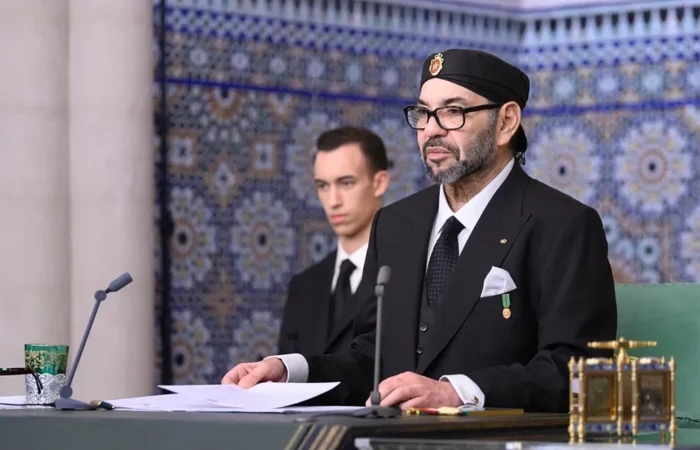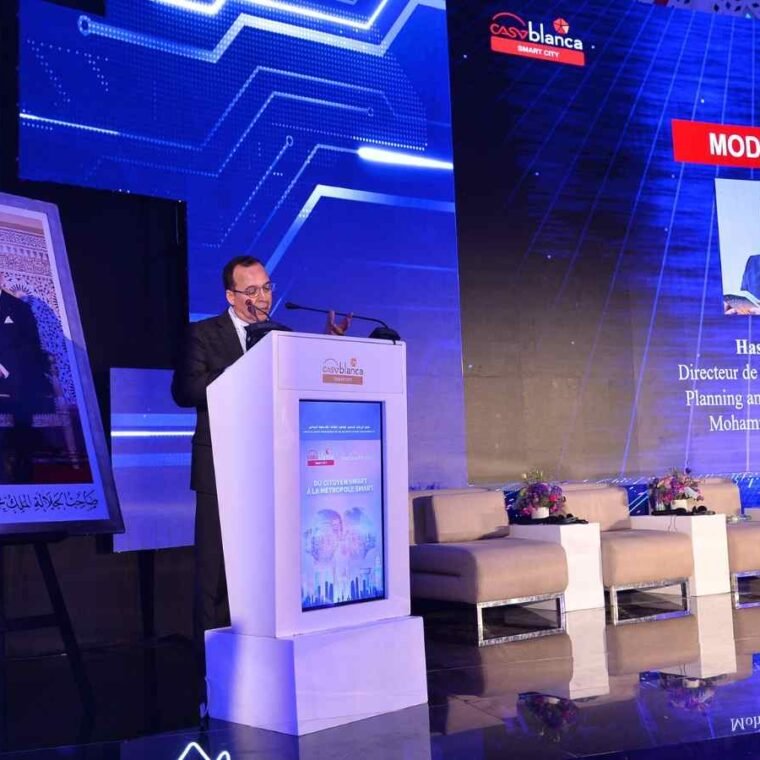In an exclusive interview with Morocco World News (MWN), Hassan Radoine, a renowned professor and director at UM6P’s School of Architecture Planning and Design, challenges the conventional industry approach, emphasizing the need for human-centered and sustainable solutions over flashy technological advancements.
Africa’s Urban Transformation: A Historic Opportunity
Africa stands on the brink of an unparalleled urban transformation. By 2050, the continent’s urban population is set to double, positioning cities as pivotal hubs for economic activity and innovation. This rapid urbanization presents both significant opportunities and daunting challenges. While it promises economic growth and social progress, it also risks deepening existing inequalities and overburdening limited resources.
The “smart cities” concept has gained global momentum, offering technology-driven solutions to address urban challenges like traffic congestion, waste management, energy inefficiency, and public safety. However, a crucial question remains: Are these solutions truly tailored for African cities?

A Human-Centered Vision for Smart Cities
Hassan Radoine, with his extensive expertise in architecture and urban planning, advocates for a human-centered approach to smart cities, particularly in the African context. Educated at the National School of Architecture in Rabat and furthering his studies in London and at the University of Pennsylvania, Radoine’s career bridges practical and academic realms.
Radoine’s significant contributions, including his book “Architecture in Context: Designing in the Middle East” and his work with UNESCO on Medina conservation, reflect his deep understanding of historical heritage and modern urban dynamics.
In his MWN interview, Radoine critiques the prevalent smart city discourse, which often emphasizes technological solutions without considering the unique needs of African urban environments. He warns against blindly replicating models from developed nations, which frequently fail in Africa’s diverse urban landscapes.

Youth Day 2024 in Morocco, A Celebration of Hope and the Nation’s Future
Beyond Technological Fetishes
The dominant smart city narrative often overlooks fundamental challenges in African cities, such as inadequate infrastructure, limited access to clean water and sanitation, and extensive informal settlements. Radoine’s concept of “gadget cities” aptly critiques the limitations of a technology-centric approach.
Radoine stresses the importance of integrating human elements into smart city planning. He argues for smart solutions that transcend gadgets and connectivity, incorporating comprehensive urban planning to address local challenges. According to a World Bank report, more than half of Africa’s population (61.7%) resides in urban areas, underscoring the urgent need to address basic infrastructure requirements.
He also highlights the necessity for robust governance structures, a skilled workforce, and appropriate regulations to implement and sustain technological solutions. A technology-driven approach risks exacerbating existing inequalities, as high-tech solutions often remain inaccessible to those living in poverty.
Smart Solutions for Urban-Rural Integration
Radoine introduces the concept of “smart territories,” which acknowledges that Africa’s urban landscape includes both dense megacities and rural settlements. This framework promotes connectivity and resource management beyond traditional city boundaries.
With mobile phone penetration in Sub-Saharan Africa reaching 43%, technology can connect farmers to markets, provide vital information, and facilitate telemedicine services. Data analytics can inform land management practices and promote agricultural innovation.
Smart territories can attract investments in renewable energy, sustainable agriculture, and eco-tourism, bridging the gap between rural and urban areas and promoting balanced development.
Embracing Living Heritage with Artificial Intelligence
Radoine proposes integrating Africa’s “living heritage” with modern technology. AI can analyze traditional design principles and extract resilience principles to inform new sustainable built environments. This approach aligns with the concept of “resilience as cultural capital,” emphasizing the value of embodied knowledge and skills.
Radoine’s perspective offers a compelling framework for sustainable development in Africa. However, further research is needed to effectively utilize AI and digital tools and operationalize the concept of “resilience as cultural capital” on a larger scale.
Radoine’s visionary perspective redefines smart cities and territories, advocating for a comprehensive, inclusive, and sustainable approach tailored to Africa’s unique contexts. By integrating technology with human-centered design and local knowledge, Africa can lead the way in creating smart cities that truly serve their communities.



